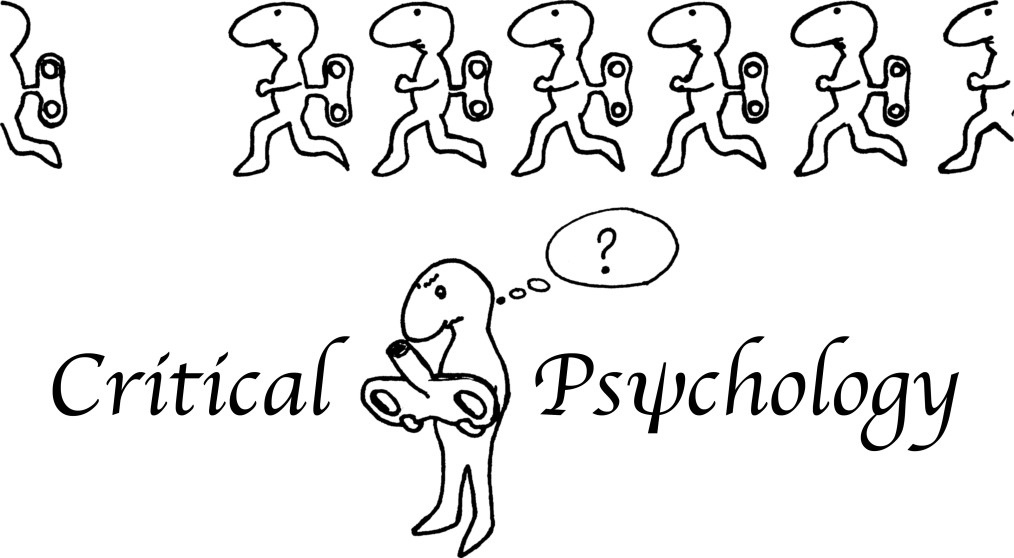
First Critical Psychology Afternoon
First Cri-Y Afternoon: How to improve science (education)
December 10, 2014 at the Faculty of Behavioral and Social Sciences
organized by Stephan Schleim (Theory and History of Psychology)
in collaboration with Rink Hoekstra (GION education/research)
Science and academia are under fire. Presently, not only philosophers or sociologists of science are pointing out problems of research and teaching. Internationally active networks such as Science in Transition demand change and critical articles are widely disseminated to the public (e.g., How Science Goes Wrong, The Economist; Rettet die Wissenschaft!, Die Zeit).
Possibly influenced by this critique, the Dutch Ministry for Research just published a Vision for Science 2025 (Wetenschapsvisie 2025: keuzes voor de toekomst). That vision is driven by the idea that scientists should consider the benefits for society more; at the same time it celebrates the successes of the present system. The first Critical Psychology Afternoon will address several aspects of the critique, the critique of the critique, and present ideas for improvement:
Hans Schepers will start out with a brief summary of his master thesis and show how science is political. Brett Buttliere will then describe his – some might say quite radical – proposal to use behavioral engineering to improve scientists’ work. There will then be 45 minutes for a discussion with the registered guests.
In the second half of the afternoon, we will cross the boundary between science and academic education. Stephan Schleim will first give a presentation on how the scientific publishing system works and which factors – or contingencies, to use Burrhus Skinner’s term – drive the behavior of scientists. Felix Schirmann will then give two short presentations arguing for two opposite positions: Must university education prepare students for the job market or be true academic forming (Bildung)? There will then be 30 minutes for a public discussion.
Program
Session 1 (Faculty BSS, Grote Kruisstraat 2/1; registration required: f.schirmann@rug.nl)
15:30 – 16:45 hrs Brett Buttliere and Hans Schepers
- Hans Schepers: On the Politics of Science
- Brett Buttliere: Behaviorally Engineering Science
- Discussion
Session 2 (Geertsemazaal, Academy Building, Broerstraat; public)
17:00 – 18:45 hrs Felix Schirmann and Stephan Schleim
- Felix Schirmann: Academic education for the job market or Bildung? Pro and con
- Stephan Schleim: How the system works; and what to do about it
- Discussion
Preparation
Required preparation for the first section:
Hans Schepers, On the Politics of Science (unpublished master thesis)
Brett Buttliere, Using science and psychology to improve the dissemination and evaluation of scientific work (Frontiers in Computational Neuroscience, 2014)
Please register by e-mail to f.schirmann@rug.nl
Recommended further reading:
Science in Transition, Position Paper (critical manifesto, also check out the SiT Website)
Stephan Schleim, Critical neuroscience—or critical science? A perspective on the perceived normative significance of neuroscience (Frontiers in Human Neuroscience, 2014)
It is also worthwhile to compare the academics’ Magna Charta Universitatum (1988) signed by the representatives of 776 universities of 81 countries with the Bologna Declaration (1999) signed by Europe’s ministers of education. Both documents just comprise a few pages.
About the Speakers
Hans Schepers recently finished the Research Master program in the Behavioral and Social Sciences at the University of Groningen and wrote a thesis On the Politics of Science.
Brett T. Buttliere recently finished his master thesis at the Methodology of Psychology department at the University of Tilburg and will soon start a PhD project at the Knowledge Media Research Center of the University of Tübingen (Germany).
Stephan Schleim is Assistant Professor for Theory and History of Psychology at the University of Groningen and publishes and teaches on the theory, sociology, and communication of science.
Felix Schirmann recently received a PhD from the University of Groningen for research on the theory and history of the neuroscience of morality and currently does research on academic ideals.



